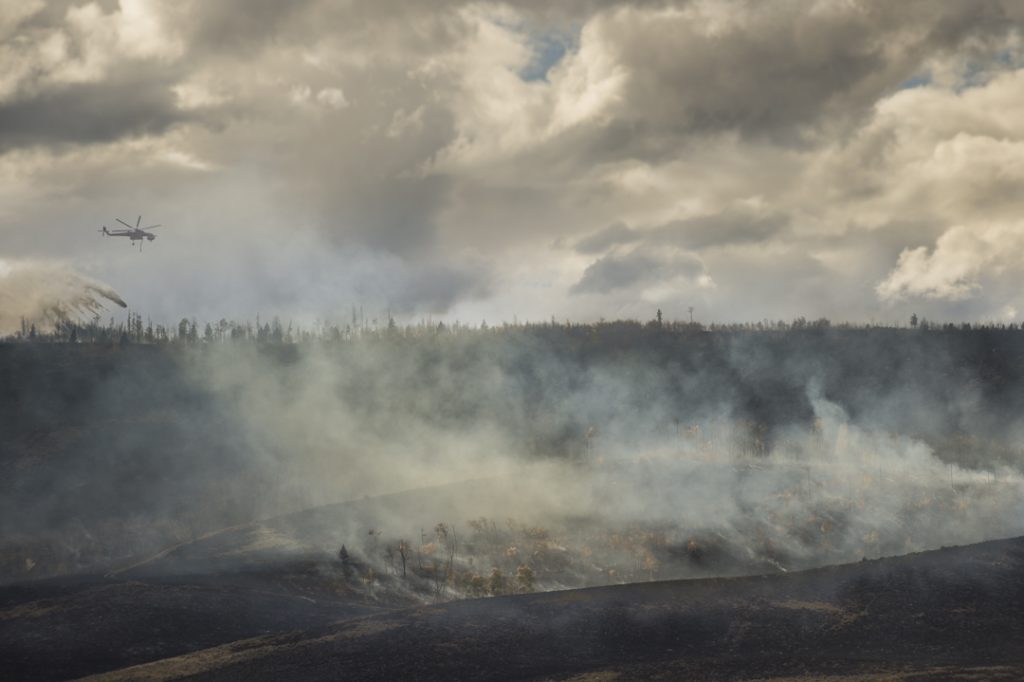
By Todd Tanner
We should all be aware of one simple truth. Everyone in the fly fishing industry is dependent on clean water and healthy fisheries to make a living. That’s true for guides and outfitters, for manufacturers, for lodge owners and employees, for fly shop owners, and for anyone who works in wholesale or retail sales. It’s even the case for those of us who write about the sport.
Without robust, viable fisheries, the entire fly fishing world grinds to a halt.
Which is one reason why so many of us take anthropogenic (human-caused) climate change so seriously. Regardless of where we live, or which species of fish we pursue, climate change is an existential threat to our livelihoods, our families, and our way of life. Simply put, if we don’t protect our freshwater and saltwater resources, there’s no future for fly fishing.
Unfortunately, the Clinton administration failed to push strong climate & energy legislation through Congress to help address the threat. The Bush administration came up short as well, as did the Obama administration and the Trump administration. And there’s almost no chance that the Biden administration will shepherd a large, stand-alone climate bill through an evenly- divided Congress before the 2022 midterm elections.
We might hope, we might wish, we might dream … but it’s not going to happen. That’s simply the reality we live in right now. We’re not going to see a large, comprehensive climate bill make its way through Congress and end up on Joe Biden’s desk.
And yet there’s a little-known fact that offers hope where otherwise there would be almost none. The massive infrastructure bill that’s starting to take shape in Congress right now — the bill based on President Biden’s American Jobs Plan — could be a tremendous down payment on climate action.
The New York Times editorial board, looking at Biden’s infrastructure proposal, proclaims that “The new president has promised to take the lead on climate. His plan does not disappoint.”
The Washington Post reports “President Biden’s infrastructure plan would turbocharge the country’s transition from fossil fuels, using the muscle and vast resources of the federal government to intervene in electricity markets, speed the growth of solar and wind energy, and foster technological breakthroughs in clean power.”
Robinson Meyer, writing in The Atlantic, helps clarify the situation for those of us who don’t always pay attention to what’s happening in Washington, DC. “There is only one serious vehicle to pass climate policy through Congress during the Biden administration—and it’s this infrastructure plan. If recent history is any guide, the bill is the country’s one shot to pass meaningful climate legislation in the next few years, if not in the next few decades.”
That’s as clear as it gets.
So now that we know exactly where we stand, it’s vital that we ask Congress to pass legislation that protects us from the worst impacts of human-caused climate change. We may only have this one shot at safeguarding our clean waters and healthy landscapes. It’s time to speak up for our fisheries, our livelihoods, and our kids & grandkids.
Please don’t wait. Contact your senators and representative today and tell them to address the climate crisis by supporting the new infrastructure bill.
 Todd Tanner is a life-long angler, a writer, a former fly fishing guide, the president of Conservation Hawks and the owner of the School of Trout. His essays about the outdoors and conservation have appeared from Fly Fisherman, Fly Rod & Reel and American Angler to Newsweek, The Hill and the NY Times.
Todd Tanner is a life-long angler, a writer, a former fly fishing guide, the president of Conservation Hawks and the owner of the School of Trout. His essays about the outdoors and conservation have appeared from Fly Fisherman, Fly Rod & Reel and American Angler to Newsweek, The Hill and the NY Times.



